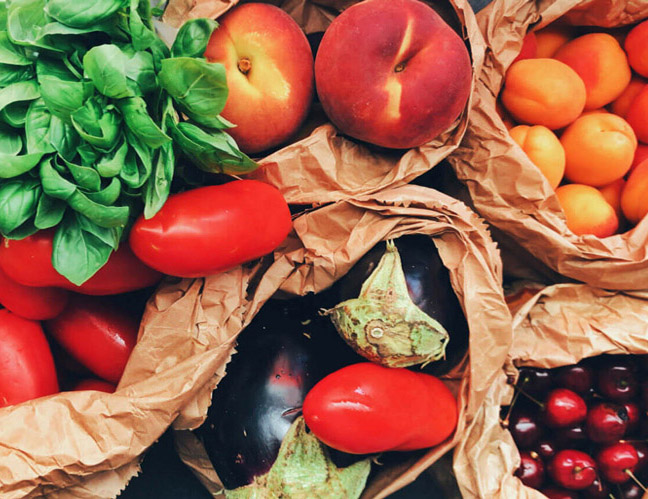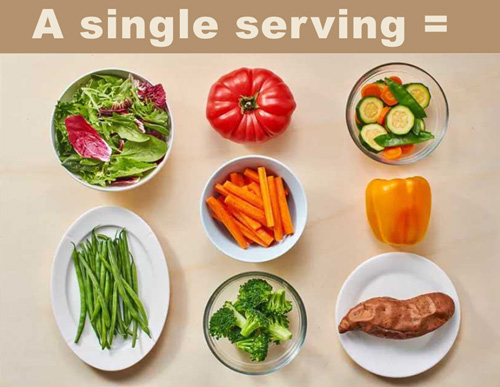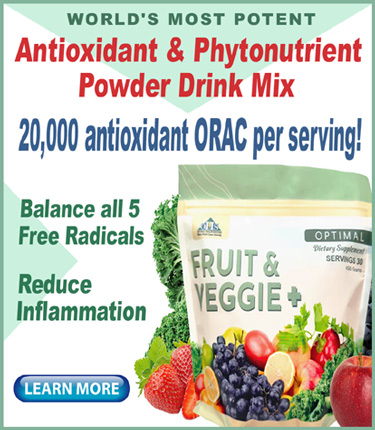Depression has emerged as one of the most widespread and debilitating public health issues in the United States. According to The Global Statistics website, in 2025 over 13% of the U.S. population is affected by depression to some extent. This represents a whopping 60% increase in depression prevalence over the past decade alone.
At the same time, the CDC website reports only 12% of Americans consume the recommended daily intake of fruit, and only 10% consume the recommended amount of vegetables.
Could it be that these two dismal statistics are related? Is the low intake of healthy fruits and vegetables a contributing factor in the depression rates? Two studies conducted on opposite sides of the world indicate yes!
UK study
In one study from the United Kingdom researchers analyzed data from 40,000 British citizens and concluded that increased consumption of fruit and vegetables generated positive changes in mental well-being.
In fact, the researchers, based at Leeds and York universities, found that even as little as a single serving of produce provided a measurable mental health boost.
The study, published in Social Science & Medicine, followed individuals between 2010 and 2017 and assessed their well-being over the years. The health data was then compared to their daily intake of fruit and vegetables over the same period.
According to the researchers, the results were clear: “People who do eat more fruit and vegetables report a higher level of mental well-being and life satisfaction than those who eat less.”
The authors of the study noted that, like in the U.S., the vast majority of the UK population does not eat the recommended daily intake. The UK has a well-known “Five-A-Day” motto; however, with diets relying heavily on processed foods this recommendation is seldom met.
The researchers also lamented the fact that consumers don’t recognize how just a modest change in diet—such as a single serving of vegetables—can have a dramatic effect.
They hope public awareness will change things.
“This strategy may be particularly effective due to the fact that positive effects for mental well-being accrue relatively rapidly, whereas the benefits in terms of physical health accrue in the medium to long-term,” they wrote in the study summary.
New Zealand study
Meanwhile, researchers in New Zealand took things a step further by establishing that raw fruits and vegetables were even more effective in supporting mental health.
Like many countries of the world, New Zealand pushes for the consumption of healthy quantities of fruits and vegetables—making no distinction between cooked and raw. But researchers at the University of Otago in Dunedin, New Zealand found the difference between how produce is prepared and consumed makes an even bigger difference for mental health outcomes
To conduct the study, published in Frontiers in Psychology, researchers surveyed 400 young adults from New Zealand and the United States between the ages of 18 and 25.
This age group was chosen because of their statistical preponderance for not consuming enough fruits and vegetables in their diets. It is also the demographic that is statistically at higher risk of mental health problems.
The researchers assessed study participants’ typical consumption levels of raw and cooked produce, along with positive and negative mental health variables. Mental health outcomes were measured in terms of exercise, unhealthy diet choices, sleep regularity, chronic health conditions, socioeconomic status, ethnicity, and gender.
“Controlling for the covariates, raw fruit and vegetable consumption predicted lower levels of mental illness symptomatology, such as depression, and improved levels of psychological well-being including positive mood, life satisfaction and flourishing. These mental health benefits were significantly reduced for cooked, canned, and processed fruits and vegetables,” the researchers wrote in the study conclusions.
Final word
Lessons from the two studies seem abundantly clear: You don’t have to turn your life upside down to have a positive health effect—a single serving increase in fruit and veggies can make a difference. And if you can make it raw fruit and veggies, even better!
– – –
Sources: Social Science & Medicine, Frontiers in Psychology, CDC.gov, TheGlobalStatistics.com.



